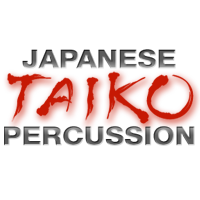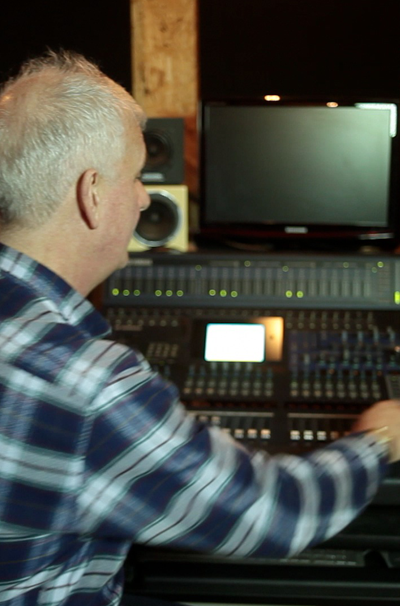BFD3
Evolved acoustic drum software
View more info
Jared Kvitka is an engineer, producer and musician best known for recording the Grammy-nominated Beth Hart & Joe Bonamassa album 'Seesaw' and Iron Maiden's Grammy-winning 'The Final Frontier' with producer Kevin Shirley. He has also worked with Rick Rubin and Andrew Scheps on Gogol Bordello's 'Transcontinental Hustle' and mixed music for numerous movie trailers including Iron Man 3, Pirates of the Caribbean and Machete. Jared took some time out of his busy schedule to tell us about his career and how he works in the studio.
FX: How did you first get involved in the music industry and how did you get to where you are today?
JK: While living in New Orleans and studying music at Tulane University, I started to get interested in the studio side of things. I met Trent Reznor one night and asked about a job at Nothing Studios, which became my first runner gig. Later I went to Piety Street Recording where I worked as an assistant for 3 years, learning about recording, mixing and, most importantly, how to interact in a studio environment.
I moved to Los Angeles in 2005 and began assisting at a studio in Malibu, quickly working my way up to become lead engineer and studio manager. This is when I met some amazing engineers and producers like Kevin Shirley, Rick Rubin, Andrew Scheps, Ryan Hewitt, and Butch Walker.
The studio closed in 2009 and I've been working freelance ever since - producing, writing, mixing albums and mixing music for movie trailers. I've continued to work with Kevin, which resulted in the 2010 Grammy Award for Iron Maiden's The Final Frontier, and the recent nomination for Beth Hart and Joe Bonamassa's album Seesaw.
FX: Which albums have made the biggest mark on you from a production standpoint?
JK: The first Joe Bonamassa album I engineered with Kevin, Sloe Gin, and the Rick Rubin-produced Gogol Bordello albums were very eye-opening for me. I really learned about how to prioritize - you have to start with a great song and a great performance. When you have good players who are well rehearsed and take the time to perfect their tones, it makes the engineering part that much easier.
FX: How has the balance between hardware and software shifted for you over the years?
JK: For mixing, it has shifted a lot! I was lucky enough to start out on SSLs with great outboard gear, and am now doing almost all mixing in my own studio with fewer outboard pieces and more plugins. The plugs sound so great and with my experience of analog mixing, I just apply the same approach and find I get very similar results.
FX: What impact have the technological advancements had upon your production technique?
JK: We all love to use Neumanns and Neves, but with all the great gear out there we have more options than ever. Its just more colors in the palette to work with. The basics are still there: start with good songs, put the mics in the right place and have a clean signal path. I find the advancements help streamline the process. For instance, programming drums used to be very time consuming and now with programs like BFD you can work quickly and have great sounds that often get used in the final mix.
FX: What are the essential pieces of equipment in your studio?
JK: I love my TK Audio BC1 compressor, dbx 160s, and my NTI EQ3-D. The UAD Card is also essential for my mixes. I have an SSL X-Desk, which I use for summing and integration of analog pieces. For writing, I really lean on BFD to get my drum and percussion ideas down. For monitoring, I love my ProAcs, and my trusty old KRKs.
FX: How have you been using BFD2 and BFD3 to create the sound you want to achieve?
JK: With mixing, it's a great tool for adding body to drum recordings. If there's something that's not quite hitting hard enough I can use BFD to get it where I feel it should be. Sometimes it's as simple as adding a kick or snare sample underneath the recording, and there's been times where I've played the tom fills in BFD and layered them in for more presence.
For composing, I love it. The orchestral drum kit sounds great, and is a solid base when doing symphonic compositions. I also use the Taiko drums and love layering snares.
FX: Do you have any tips or tricks you would like to share?
JK: Always have a reference when mixing. I like to create my own picture of a song, but the artists usually have something in mind that they love listening to or want their songs to sound like. I use the reference to make sure that when we're done the song stands up to, or exceeds that reference.
I’m big on MIDI gear and use a Livid Code 2 and NI MASCHINE MK2. I have an RME sound interface and and I’m a fan of my Adam Monitors as well. In terms of FXpansion VSTs: FXPansion’s D:CAM Synth Squad and Geist have been staples in my studio for quite some
FX: What do you have lined up next?
JK: I've been doing a lot of writing and mixing. I recently finished mixing a Prog-Rock album that was just released, and working on another project right now. I will be producing a record at the end of the year and have a couple recording projects coming up with Kevin.
Thank you Jared for your time, tips and insights!
Interview: September 2014
Evolved acoustic drum software
View more info

Huge and authentic Japanese taiko drums
View more info

Concert drums, cymbals and chimes
View more info

FXpansion hooked up with Steve Levine in his Liverpool studio to chat about his recording and production techniques...
View artist interview

Tacoma Narrows Bridge Disaster hail from London...
View artist interview
THANKS FOR SIGNING UP
WELCOME TO THE FXPANSION COMMUNITY!